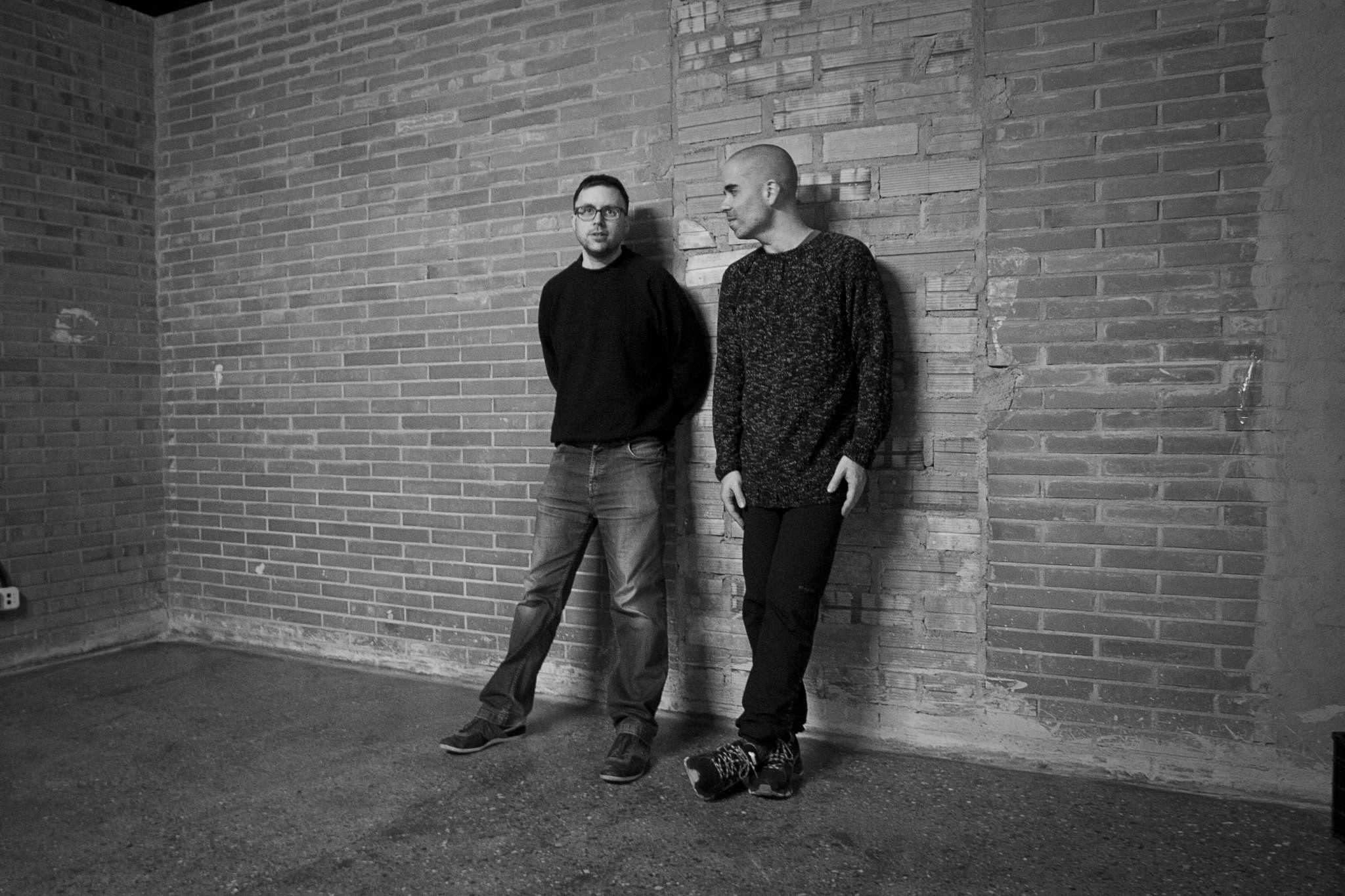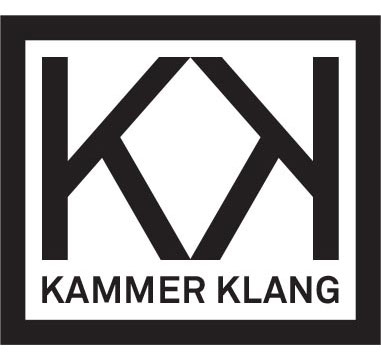
Programme
20.00 Doors
20.30 Programme begins
*Please be aware strobe lights will be in use for the final 30 minutes of this event.*
Fresh Klang: Ewa Justka (home-made synths, fluorescent lights)
/
Telemann, Fantasie in A minor
Samantha Fernando, Lost Things (2016)
Telemann, Fantasie in D minor
Samantha Fernando, Kinesphere (2014)
Telemann, Fantasie in G minor
Ferneyhough, Cassandra’s Dream Song (1970/71)
Michael Cox (London Sinfonietta), flute
/
Hanne Darboven, Opus 17a (1984)
Enno Senft (London Sinfonietta), double bass
/
EVOL, Opus17aSlimeVariation#11
A reinterpretation of Hanne Darboven’s Opus17a
/
DJs: Alku
EVOL

Opus17aSlimeVariation#11 is part of the ongoing series of reinterpretations that Roc Jiménez de Cisneros and Stephen Sharp have played and recorded taking German artist Hanne Darboven’s Opus 17a as a starting point. In 2014, 30 years after Darboven’s piece was written, they collaborated with the British artist and programmer Guy Birkin to crack and transcribe the score (hundreds of pages long, written in the form of mathematical poems), in order to use it and abuse it in their own way. Since then, they have produced a number of versions of the piece – for drum machine, for computer, for carillon, for laser and UV paint – extending their mutant techno aesthetics, while at the same time paying tribute to Darboven’s maddening score.
“The works of Hanne Darboven work like a mountain: the top can’t be seen from the bottom, the base disappears from the summit, the whole escapes the climber as the pilot misses the point, it stands as metaphor for something that exists metonymically, exists as a surplus of the Real with an excess of the Symbolic, and is both of the moment and continuously monumental.” – Vanessa Place, X-TRA
Roc Jiménez de Cisneros – on his own and working alongside Stephen Sharp as EVOL – makes computer music for hooligans and deconstructed rave objects. Evol’s music has been released by Entr’acte, Editions Mego, Presto!?, fals.ch and their own label ALKU, and showcased at festivals, clubs, galleries and museums around the world. Evol recordings, installations and performances have a unique approach to sound matter, full of upward spirals, trance-inducing patterns and challenging temporal structures.
Michael Cox

Michael Cox is one of Britain’s foremost flute players. Born in England, he spent his childhood in Africa, and studied music at the Zimbabwe College of Music and the Royal College of Music in London. Early competitive successes led to a solo career that has included concerts and recordings on all continents and performances with major orchestras and conductors. As a chamber musician he has performed with many well-known British quartets, quintets and ensembles, and worked alongside musicians including James Galway and Murray Perahia, as well as being a member of the Haffner and Albion wind ensembles, London Symphony Chamber Players and London Sinfonietta. An interest in a wider repertoire led to a concurrent orchestral career, first as co-principal with the BBC Symphony Orchestra, and then as principal flute of the London Symphony Orchestra, London Mozart Players and Britten Sinfonia. He is now principal flute chair at the BBC Symphony Orchestra, the Academy of St Martin’s in the Fields and London Sinfonietta. His particular interest in contemporary music has led him to work with composers such as Messiaen, Takemitsu, Dutilleux, Berio, Boulez, Tippett, Birtwistle, Stockhausen, Henze, Adams, Carter, Penderecki, Lutoslawski. Cox is professor of flute at the Royal Academy of Music in London. He plays on Altus flutes and has recently become an Altus Artist.
Enno Senft

Enno Senft is principal double bass and a founder member of the Chamber Orchestra of Europe. He has performed and recorded with many of the greatest conductors and soloists, such as Claudio Abbado, Nikolaus Harnoncourt, Bernhard Haitink, Yanniek Nezet-Seguin, Andras Schiff, Heinz Holliger and, as soloist, under Sir Roger Norrington. He has participated in various chamber music and contemporary music festivals, including the Berliner Festwochen, Wien Modern, the Huddersfield, Cheltenham and Aldeburgh Festivals, Venice Biennale, Oxford May Music, the Wigmore Hall Series in London and the Sydney Festival. Senft is also principal double bass of the London Sinfonietta, and has worked closely with Oliver Knussen, George Benjamin, Sir Harrison Birtwistle, Steve Reich, Thomas Ades, Georg Friedrich Haas, Peter Eötvös and György Kurtag.
Hanne Darboven

The German conceptual artist Hanne Darboven moved to New York in 1965, after studying at the Hochschule für Bildende Kunst in Hamburg, and began to produce delicate point and line drawings that gave form to sets of mathematical calculations. Although she lived in almost total solitude, her work became part of a collective effort to replace the discrete art object with Conceptual art, grounded in ideas and actions. In the late 1960s she began to use the divisions of the calendar as the conceptual basis of her art. One Month, One Year, One Century (1971; Aachen, Neue Gal.) consists of 402 books, each containing series of numbers extrapolated from a single date and grouped with other volumes to represent months, years, and finally a whole century. Her books and mounted images, painstakingly handwritten, embody not only an abstract span of time but also the actual time of the artist’s labour.
In the 1970s Darboven often allied her work, which she considered a form of writing, to the accomplishments of writers such as Heinrich Heine and Jean-Paul Sartre, directly transcribing portions of their texts or translating them into patterns. She further expanded her scope by including musical arrangements and photographs in her displays. In the World View series (exh. 1982, Venice, Biennale), she incorporated 19th-century postcards of historic sites and monuments into a vast calendar-like work that summarized her preoccupation with lived experience and passages of time. (Tate Modern)
Georg Philipp Telemann

Georg Philipp Telemann (14 March 1681 – 25 June 1767) was a German Baroque composer and multi-instrumentalist. Almost completely self-taught in music, he became a composer against his family’s wishes. After studying in Magdeburg, Zellerfeld, and Hildesheim, Telemann entered the University of Leipzig to study law, but eventually settled on a career in music. He held important positions in Leipzig, Sorau, Eisenach, and Frankfurt before settling in Hamburg in 1721, where he became musical director of the city’s five main churches. While Telemann’s career prospered, his personal life was always troubled: his first wife died only a few months after their marriage, and his second wife had extramarital affairs and accumulated a large gambling debt before leaving Telemann. Telemann was and still is one of the most prolific composers in history (at least in terms of surviving œuvre) and was considered by his contemporaries to be one of the leading German composers of the time—he was compared favorably both to his friend Johann Sebastian Bach, who made Telemann the godfather and namesake of his son Carl Philipp Emanuel, and to George Frideric Handel, whom Telemann also knew personally. Telemann’s music incorporates several national styles (French, Italian) and is even at times influenced by Polish popular music. He remained at the forefront of all new musical tendencies and his music is an important link between the late Baroque and early Classical styles.
Brian Ferneyhough

Brian Ferneyhough was born in Coventry on 16 January 1943. He has taught at the Freiburger Musikhochschule, at the University of California at San Diego (1987-1999) and most recently Stanford University, where he is William H. Bonsall Professor in Music. Alongside these permanent appointments, he has been associated with the most prestigious teaching institutions and international summer schools for contemporary music. From 1984 to 1996 he was Composition Course Co-ordinator at the biennial Darmstädter Ferienkurse fur Neue Musik, and from 1990 principal teacher at the annual Composition Course of the Fondation Royaumont. Ferneyhough’s work has been performed and featured at the major festivals of contemporary music, including Akiyoshidai, Brussels, Darmstadt, Donaueschingen, Glasgow, Holland, Huddersfield, ISCM, La Rochelle, London (Almeida), Milan, Middelburg, Paris (Festival d’Automne), Royan, Salzburg, Strasbourg, Venice, Warsaw and Zurich, and he has been the recipient of several professional and honorific distinctions. In 1984 he was made Chevalier de l’Ordre des Arts et des Lettres. He has since been named a member of the Berlin Akademie der Künste, the Bayrische Akademie der Schönen Künste and a Fellow of the Royal Academy of Music. Most recently, he has been awarded the Ernst von Siemens Music Prize for 2007. A BBC Total Immersion event was dedicated to the composer in 2011, and his 70th birthday in 2013 has given rise to a number of celebrations.
Samantha Fernando

photograph by Marianne Chua
Samantha Fernando was born in Berkshire (UK) in 1984 and now lives in Surrey. In 2013, she was awarded an RPS Composition Prize and was commissioned to write a new work for the Philharmonia Orchestra as part of the Music of Today series. This work, Sense of Place, was premiered in May 2014 at the Royal Festival Hall. So far, 2016 has seen the premiere of The Journey Between Us– a large-scale work for narrator and ensemble, commissioned by the London Sinfonietta and premiered at the Southwark Playhouse in February. Also premiered in February was Samantha’s Sissay Settings for soprano and piano. Commissioned by York Late Music in response to the poetry of Lemn Sissay. Current projects include a short film score, to be recorded by the London Mozart Players this March and a new opera project with poet/librettist J L Williams. Samantha is a Lecturer in Composition at Royal Holloway, University of London. She holds a Masters and Doctorate in Composition.
Ewa Justka

Ewa Justka is a Polish electronic noise artist, self-taught instruments builder and electronics teacher based in London. She currently studies computational arts (MA) at Goldsmiths College.
Ewa’s main field of research is based on the exploration of the materiality of objects as well as vibrant, ontological systems (human bodies, plants’ bodies, electronic circuits: various micro- and macro-environments and the relations between them), and an investigation of modes of quasi-direct perception through noise performance actions, interactive installations, DIY electronics, hardware hacking, plant-molesting, breaking, deconstructing and collaborating. In her artistic work Ewa attempts to explore the concept of the materiality of the hidden.
About this set:
“If that plasmic energy is alive, and it is (or it carries) information, then we have living information. Logos? Information plasma which enters through the optic nerve primarily – or auditorily. Signals that control our brains, open GABA blocked circuits.” (Philip K Dick, The Exegesis).

